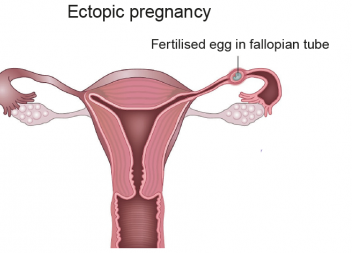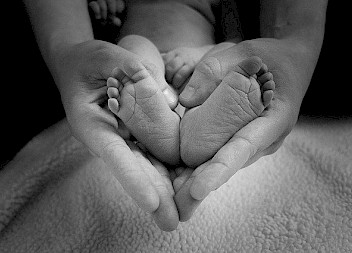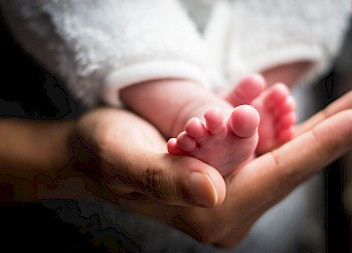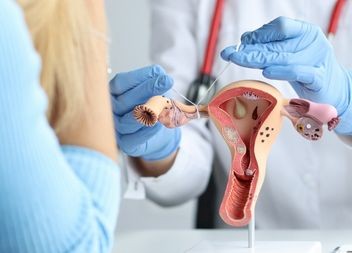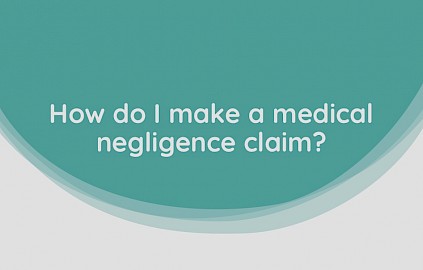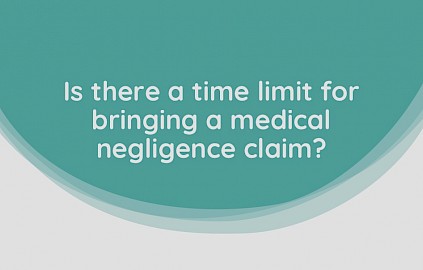Can a Vasectomy Fail?
Whilst vasectomy failures are not common, it is possible for them to go wrong. There are some cases in which failed surgery during vasectomy or sterilisation has resulted in pregnancy, which can then lead to surgery claims and compensation.
Reasons to Have a Vasectomy
There are many reasons why you might consider having a vasectomy. For example:
-
Vasectomies are effective at preventing pregnancy
A vasectomy’s main purpose is to prevent unwanted pregnancies, whether for personal, financial or medical reasons. In most cases, a vasectomy is an effective form of contraception which can help to reduce anxiety during intercourse and reduce or eliminate the need for female, hormonal birth control.
-
Vasectomies have a fast recovery time
You can typically recover from a vasectomy within a week and avoid discomfort by using an ice pack.
-
Vasectomies pose no risks to sexual health
Vasectomies do not cause side effects linked to hormone changes or impact your sexual dysfunction risk.
Am I Entitled to Compensation for Failed Vasectomy Negligence?
When a vasectomy goes wrong, you may have grounds for a failed sterilisation claim. Failed sterilisation poses the danger of enormous practical and financial hardship caused to families in these circumstances.
It is important to speak to specialist medical solicitors for advice. You should not face this situation alone.
Medical Negligence and Failed Sterilisation
Sterilisations are commonly successful, but practitioners sometimes mistake surrounding tissues for the fallopian tube. This can lead to the sterilisation clip being applied to a ligament instead of the fallopian tube. This inevitably leads to an unplanned pregnancy, usually within 12 months of the surgery.
However, if a pregnancy occurs after a 12-18 month period, then this will more often be down to the body’s own healing abilities, rather than a surgical error. This is because the fallopian tube can sometimes regenerate itself by forming a tube around the clip and finding its way back to the ovary. This natural healing process is called ‘tubal lumen regeneration’.
Reasons for Vasectomy Failures
There are several reasons why a vasectomy may go wrong, including:
-
Unprotected sexual intercourse soon after a vasectomy
There can be non-negligent reasons for the failure of vasectomy, the obvious one being unprotected intercourse soon after the procedure before the remaining live sperm downstream from the vasectomy site are completely “flushed” out of the system.
Typically, it takes 20-25 ejaculates (or three months) for the live sperm to be eliminated from the tubes after a vasectomy. Provided a patient has been fully informed about this and advised about using contraception until the ejaculate is “cleared” of sperm after the vasectomy, then this is not negligent.
-
Recanalisation
Much less common are vasectomies that fail due to the blocked sperm tubes reconnecting on one or both sides after the procedure (‘recanalisation’). The frequency of this depends mainly on how the surgeon made the blockage during the vasectomy procedure in the first place.
Early on, after the vasectomy, the scar tissue blockage is softer and may be more easily penetrated by live sperm than the same scar tissue after it has hardened several months later.
-
Failure to identify the sperm tubes
Vasectomies can also fail due to failure to identify the sperm tubes during the procedure and a failure to block both sides. The vas deferens tubes exist in the scrotum along with other structures, including blood vessels and nerves. If something other than the vas deferens is selected for blockage, sperm will remain in the ejaculate.
This results in a persistent, and often normal, sperm count in the ejaculate after the vasectomy. It is more likely to happen in cases of prior scrotal surgery that may obscure the anatomy, including surgery for undescended testis and prior vasectomy reversal.
What Vasectomy Negligence Claims Can I Make?
If treatment goes wrong, you may be able to make a failed vasectomy or sterilisation claim against your healthcare provider. The following claims may result:
-
Wrongful conception
In addition, an action in contract may also arise if the sterilisation procedure was performed outside the NHS in the private sector.
-
Negligence
A breach of duty arises when an operation is not carried out in accordance with the practice accepted as proper by a reasonable body of surgeons or gynaecologists (Bolam test). Negligence also occurs when there is an omission in appropriate pre-operative counselling.
-
Wrongful birth
The negligent act deprived the mother of the possibility to prevent the conception of a disabled child or to have a lawful abortion.
-
General Damages
Women are entitled to recover General Damages for pain and suffering during pregnancy and delivery. Moreover, both parents can claim for shock and distress upon discovering the child’s condition as disabled and the increased stress in bringing up the child.
-
Disabilities
Parents who chose sterilisation to avoid the risk of a child with congenital abnormalities can recover the costs associated with the child’s disabilities, even though the clinician’s negligent sterilisation had not caused the disabilities. Find out more about birth injury claims.
-
Loss of earnings
Parents may be able to claim for loss of earnings. For example, they may have to cover costs for bringing up a disabled child, including medical costs and child care fees, which they would not have lost had the child been healthy. Additionally, if a woman is proven to suffer from a psychiatric disorder caused by the pregnancy that continues to prevent her from working after the pregnancy, then a loss of future earnings claim may be permitted.
-
Loss of the right to limit family size
You have the right to control your family size, meaning compensation may be claimed if you are denied this right.
What is the Time Limit for Failed Vasectomy Compensation Claims?
In most cases, you have up to three years from the date you became aware of your negligent vasectomy treatment to make a failed vasectomy claim. At Medical Solicitors, we do not shy away from cases with time difficulties, so please don’t let medical claim time limits deter you from getting in touch.
Medical Negligence and Failed Sterilisation Case Study
In a real-life failed sterilisation case, a woman received £20,000 after she fell pregnant following a failed sterilisation. In this case, the practitioners had failed to apply the clip to the fallopian tube, and so the Claimant had her fourth baby.
Having opted for sterilisation to decrease the risk of long-term hip damage from pregnancy, she suffered from severe hip pain and a limp that demanded months of treatment after the birth.
Want to talk to us about a failed vasectomy or sterilisation claim?
At Medical Solicitors, we know that sterilisation and vasectomy failures can have serious physical, mental and financial consequences for you and your loved ones.
Our specialist medical negligence solicitors are experts in failed vasectomy compensation claims, and are here for you at every step of your journey.
Contact us for an informal, informative chat about your potential claim and we’ll provide free, no-obligation legal advice on how to best proceed. If we believe we can assist you, we will most likely offer a No Win, No Fee Agreement (also known as a Conditional Fee Agreement).
You have nothing to lose financially in contacting us, and we are here to help you seek the justice you deserve. Get in touch today to speak with our friendly team.
Please Note: At Medical Solicitors, we specialise in failed sterilisation and vasectomy claims involving healthcare providers in England and Wales and will be happy to provide assistance if your case is located in either of these regions. Unfortunately, we do not handle failed sterilisation and vasectomy claims outside of England and Wales.



